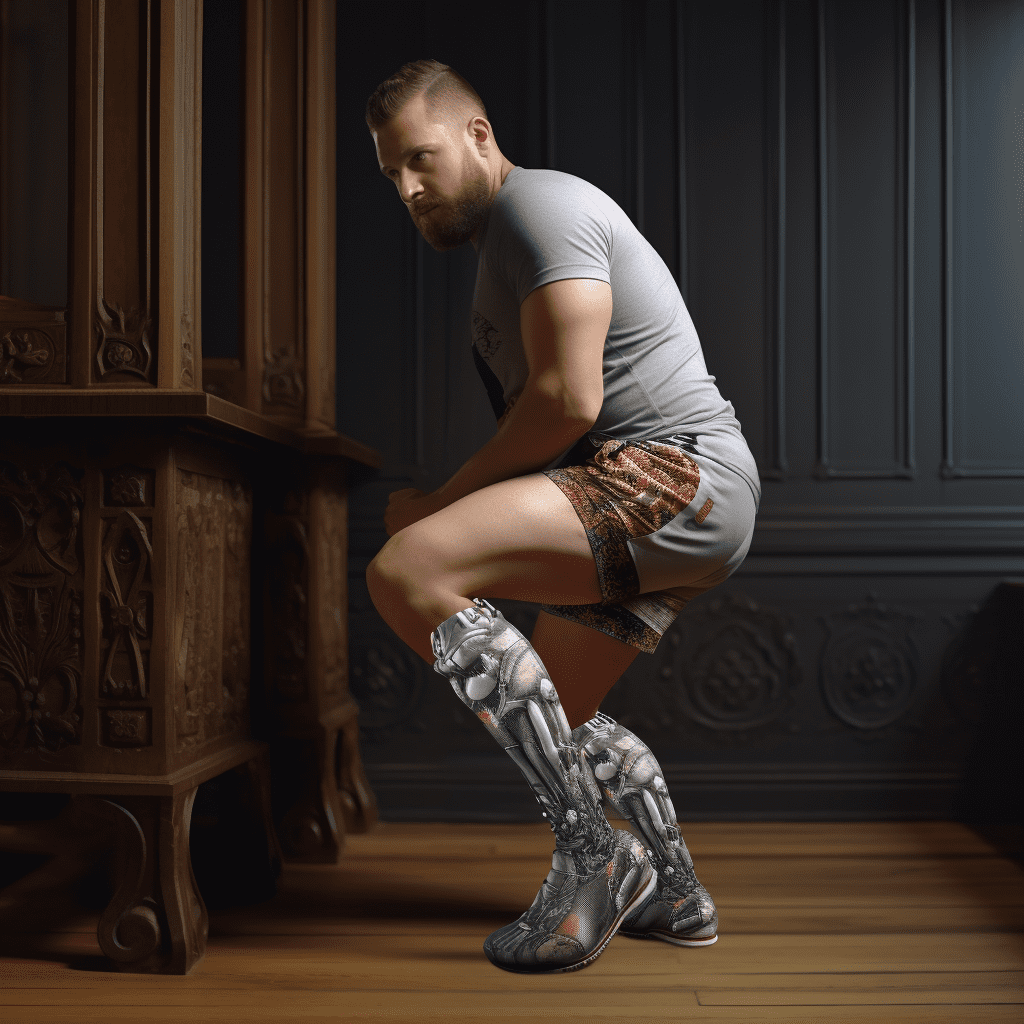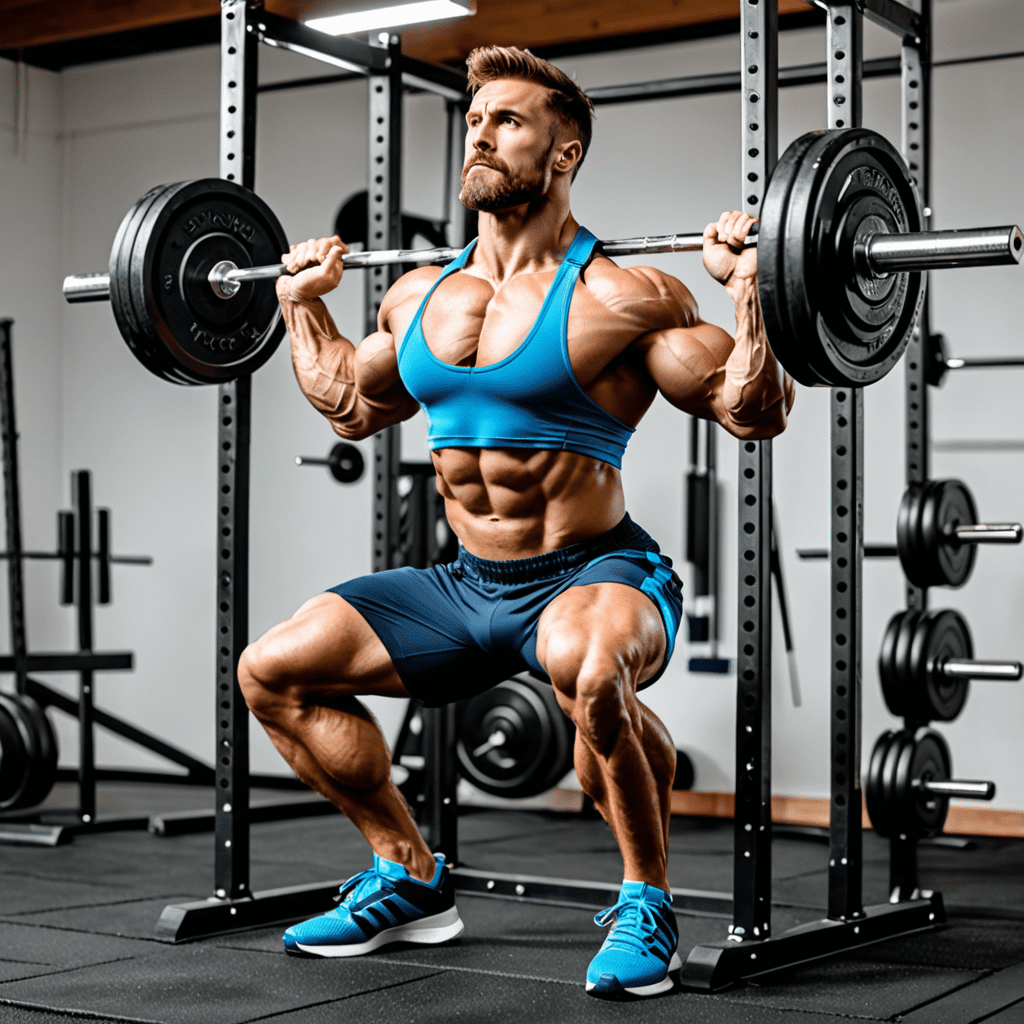
Why Do My Knees Pop When I Squat?
Squatting is a common exercise that targets the lower body, specifically the quadriceps, hamstrings, and glutes. While it is generally a safe and effective exercise, some individuals may experience popping or cracking sounds in their knees when they perform squats. In this article, we will explore the possible reasons behind this phenomenon and whether it is a cause for concern.
Understanding the Anatomy of the Knee
Before delving into the causes of knee popping during squats, it is essential to have a basic understanding of the anatomy of the knee joint. The knee is a hinge joint made up of bones, ligaments, tendons, and cartilage. It allows for flexion and extension, providing mobility and support to the lower body during various movements, including squatting.
What Causes My Knees to Pop When I Squat?
- Gas bubbles: One explanation for the popping sound in the knees is the presence of gas bubbles within the synovial fluid that lubricates the joint. When you perform a squat, the pressure changes within the knee joint can cause these gas bubbles to pop and create a cracking or popping sound.
Tendon movement: As you squat, the tendons in your knees move over bony structures, such as the patella (kneecap) and the tibial tubercle. The movement of tendons can result in snapping or popping sensations.
Cartilage and meniscus irregularities: Issues with the knee cartilage or meniscus, such as cartilage wear and tear or meniscus tears, can lead to popping sounds during squats. These conditions may require medical attention and should be evaluated by a healthcare professional.
Joint instability or misalignment: If your knees are misaligned or if you have a history of knee injuries, the joint may be unstable or not tracking properly, resulting in popping or cracking sounds during squatting movements.
Is Knee Popping During Squats Normal?
In most cases, knee popping during squats is considered normal and harmless. It is often associated with harmless factors such as gas bubbles within the joint or tendon movement. If you experience no pain or other symptoms, there is typically no cause for concern.
However, if you experience pain, swelling, or discomfort along with the knee popping, it is advisable to consult a healthcare professional. They can help determine the underlying cause and provide appropriate treatment or guidance. It is crucial to address any persistent or problematic knee issues to prevent further injury or complications.
How Can I Reduce Knee Popping During Squats?
While knee popping may not always be preventable or a cause for concern, there are a few steps you can take to potentially reduce the occurrence:
- Warm up: Prior to performing squats, ensure you warm up your muscles and joints adequately. Dynamic stretches and mobility exercises can help prepare your knees for the movement.
Maintain proper form: It is crucial to maintain proper squat form, including keeping your knees aligned over your toes, engaging your core, and distributing your weight evenly. Poor form can contribute to knee stress and popping.
Gradually increase intensity: If you are new to squatting or have recently increased the weight or intensity of your squats, consider gradually progressing to allow your body to adapt. Sudden increases in intensity can place additional stress on the knees.
Strengthen supporting muscles: Strengthening the muscles that support the knee, such as the quadriceps and hamstrings, can help improve knee stability and reduce the likelihood of popping.
Frequently Asked Questions
Q: Should I be concerned if I experience knee popping during squats?
A: In most cases, knee popping during squats is harmless. However, if you experience pain, swelling, or discomfort, it is advisable to consult a healthcare professional.
Q: Can knee popping be a sign of an underlying knee condition?
A: While knee popping is often harmless, it can sometimes be a sign of an underlying knee condition such as cartilage wear, meniscus issues, or joint misalignment. If you have concerns, it is best to seek medical advice.
Q: Can I continue squatting if my knees pop?
A: If there is no associated pain or discomfort, you can generally continue squatting. However, it is essential to listen to your body and consult a healthcare professional if you have any concerns.
Q: How can I prevent knee popping during squats?
A: To potentially reduce knee popping, warm up adequately, maintain proper form, gradually increase intensity, and strengthen supporting muscles.
Q: Are there any exercises that can help strengthen my knees?
A: Yes, exercises like leg presses, lunges, step-ups, and hamstring curls can help strengthen the muscles around the knee and provide support during squatting movements.
Q: When should I seek medical attention for knee popping during squats?
A: If you experience persistent pain, swelling, instability, or any concerns about your knee health, it is advisable to consult a healthcare professional for a proper evaluation and guidance.


